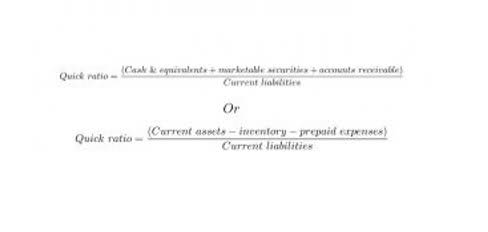Mastering Not-For-Profit Bookkeeping: Expert Guide for Nonprofits

Bookkeeping covers your nonprofit’s day-to-day financial needs, mostly concerning data entry and simple transactions (more on these duties to come!). Although bookkeepers need some on-the-job training and accounting services for nonprofit organizations financial know-how to do their jobs well, they aren’t required to have specific degrees or certifications. Taking steps like educating yourself about the subject and investing in effective software will help your financial department become more and more effective.
What accounting method do most nonprofits use?
- Instead, consider FinancePal’s online payroll services that provide you with peace of mind knowing that your organization’s payroll obligations are being met.
- It’s recommended that you lump materials and goods together as much as possible, so you’re not burdened with this task.
- Yes, except for churches and very small organizations with gross receipts under $50,000, which may file the simple Form 990‑N.
- Every dollar that comes in and every dollar that goes out must be recorded.
- Government agencies, like the IRS, expect detailed reports for compliance.
- One of the most nuanced challenges in nonprofit accounting is the art of cost allocation.
In addition to salaries, nonprofit organizations should consider factors such as benefits, payroll taxes, workers’ compensation, etc. But most nonprofits don’t need a full-time accountant and generally speaking, employees are expensive. We have staff with nonprofit experience and can be hired at every level of accounting, from basic bookkeeping to fractional CFO.
What is the best software for nonprofit bookkeeping?

Understanding the principles of bookkeeping empowers how is sales tax calculated nonprofit managers to make informed decisions and strategize better for funding allocations. This guide outlines key strategies to streamline bookkeeping practices, ensure compliance, and enhance financial insights. When recording donations for a nonprofit, there must be a distinction between unrestricted and restricted funds.
- Proper planning facilitates a seamless transition, enabling nonprofits to benefit early from outsourcing.
- Even your choice of accounting software must align with the unique tracking requirements because regular business tools often fail to do so.
- Finding someone who harmonizes with your mission and values also plays a critical role.
- This delicate balancing act requires technical expertise and careful documentation to satisfy various stakeholder requirements.
- Implement a robust system to track all donations and contributions received by the nonprofit.
Differences in Recording Transactions
The core of nonprofit accounting is accountability, meaning your goal in your accounting practices should be ensuring honesty and transparency with your donors, other stakeholders, and the government. Nonprofit accounting best practices include keeping detailed documentation of every transaction. This helps nonprofit accountants maintain transparent financial records and track their mission progress. However, nonprofit accounting is vital when handling restricted funds from multiple sources, managing government grants, or preparing for audits. Organizations planning major program expansions or dealing with complex compliance requirements also benefit from professional nonprofit accounting oversight. While often used interchangeably, nonprofit accounting and bookkeeping serve different functions.

Open separate bank accounts
Let’s walk through a few accounting best practices that nonprofit professionals should implement. These categories are based on the Unified Chart of Accounts (UCOA), a standardized COA model that aligns with nonprofit reporting requirements. However, most small to mid-sized organizations find the UCOA too detailed and prefer to use other online templates that they can customize to only include the accounts they need. Effective nonprofit financial management also involves duties related to strategy and oversight. These areas are typically covered by your organization’s chief financial officer (CFO) and treasurer, respectively. Having at least four people working on your nonprofit’s finances allows them to delegate responsibilities and check each other’s work, reducing the risk of human error and creating a more efficient system.
These systems integrate multiple processes to record and update all transactions automatically, allowing users to access financial data in real-time from anywhere with an internet connection. Organizations must also have proper employee records and a payroll system to ensure compliance with these laws. Nonprofits must also ensure they file annual information returns (Form 990) with the IRS to maintain their tax-exempt status. Nonprofits are required to submit annual reports to the IRS and other regulatory bodies. To avoid penalties or legal issues, these reports should be submitted accurately and on time.


The software must support the entire accounting Budgeting for Nonprofits process, provide flexibility, and meet compliance needs. The nonprofit and the firm must be comfortable using the selected software to avoid future challenges. Nonprofits pay only for the actual services utilized each month or quarter. This provides annual savings while receiving specialist assistance to complete mandatory financial tasks. The streamlined cost structure aids nonprofits’ sustainability and reallocation of resources to their mission activities.
Recording In‑Kind Donations Accurately
External audits objectively evaluate financial statements, enhance credibility, and ensure compliance with accounting standards and regulatory requirements. With our nonprofit bookkeeping and accounting services, we’ll ensure your books are always audit-ready. Plus, give you timely financial reports and expert advice that help you carry out your mission.
- While an accountant will interpret financial reports and make informed suggestions for the board, a bookkeeper is responsible for organizing the nonprofit’s data to create these reports.
- To do this, you’ll need to set reasonable expectations for your income, expenses, and financial goals.
- Adhere to grant requirements and restrictions, ensuring that funds are used in accordance with donor intentions.
- If you’re still relying on a shoe box full of receipts or scribbled notes, you’re asking for trouble.
- Expenses should be clearly defined, budgeted for, tracked ongoingly, and regularly monitored and reevaluated.
- A full-time bookkeeper handles the day-to-day accounting functions for your office.
- However, nonprofit accounting is vital when handling restricted funds from multiple sources, managing government grants, or preparing for audits.
- Work with your accountant to plan ahead and ensure you can complete all of them accurately and on time.
- It can be tempting to combine nonprofit funds with your personal accounts during this time since you aren’t bringing in a lot.
- Also, the IRS requires nonprofits to carefully track donor data so that the public support test can be accurately calculated.
- Our qualified compliance experts can advise you on best practices and provide support to ensure your nonprofit organization follows industry-specific accounting.
Your non-profit must prepare annual financial statements to report its activities. By the way, 1-800Accountant can support your non-profit with professional bookkeeping and accounting services. Many nonprofits operate on a shoestring budget and depend on donations to simply survive month-to-month. Unlike traditional businesses, whose primary goal is to generate maximum profit for their owners and shareholders, nonprofits manage their money with their mission in mind.
